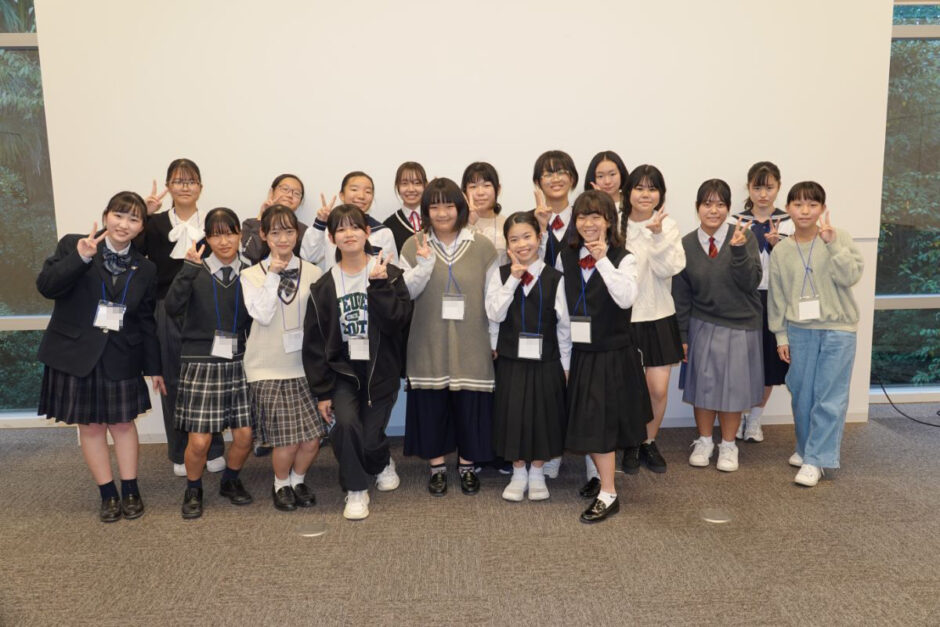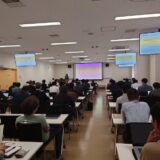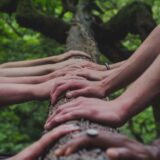On Saturday, October 28, 2023, NPO STEM Career Path Project for Girls, co-hosted by Soroptimist International of Kagoshima Online and co-sponsored by Kagoshima University and the Rotary Club of Kagoshima University Academy, held an event at the Kagoshima University Learning Exchange Plaza (Kagoshima University Korimoto Campus). The aim was to discuss dreams and career paths for junior and senior high school girls who are considering a career in science and engineering with female scientists and engineers who are active in various fields.
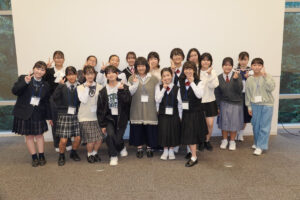
After the opening ceremony and orientation, Ms. Aika Kawabata from Shinnihon Kagaku, Dr. Asuka Hisatomi from Toyota Auto Body Research Institute, and Ms. Yoshiko Mori from Y’s Plus, gave lectures on their experiences as students and their current lives and jobs, as well as the appeal of a career in science and engineering.
The participants, who were a bit nervous at first, smiled as time went by and asked many questions. Although the lecture lasted about an hour and a half, it was a valuable opportunity for the participants to deepen their understanding of the significance of studying and working in science and engineering in the future and the diversity of career paths in science and engineering.
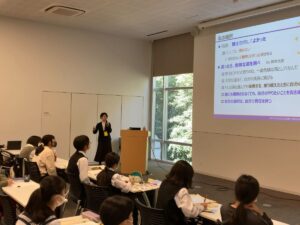
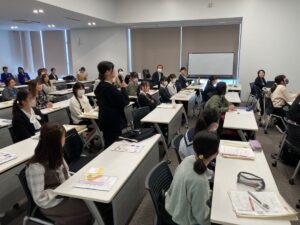
In the first program of the afternoon after lunch, entitled Science Adventure I “Let’s be mini-scientists,” participants were divided into four groups and engaged in full-scale scientific experiments guided by Kagoshima University faculty members. All the experiments were of a very high level, but the participants took each experiment seriously under the enthusiastic guidance of the faculty and student TAs. In addition to simply working with their hands, they were able to deepen their understanding of the latest science and technology by discussing the results and their meaning together with the faculty members.
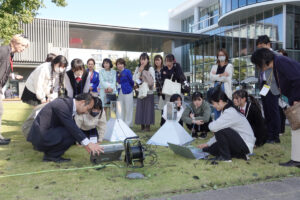
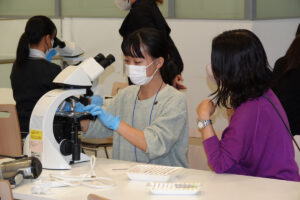
Science Adventure III “Tell everyone about your dream”
Participants then engaged in Science Adventure II: “Talking with engineers and seniors” and Science Adventure III: “Let’s tell your dreams to others.”
In the first half of Science Adventure II, “Talk with engineers and seniors,” in addition to career lecture speakers, the participants were joined by Dr. Michiko Shimizu (general internist), Dr. Haruka Sakami (project researcher, Milky Way Galaxy Research Center), Dr. Ayane Tajima (graduate student, Graduate School of Science and Engineering), Dr. Katsuko Kajiya (professor, Graduate School of Science and Engineering), Dr. Katsuko (Professor, Faculty of Agriculture), and Ms. Minaho Sato and Ms. Hanoko Shimizu (undergraduate students (Faculty of Engineering)) joined us for a roundtable discussion on topics related to participants’ dreams, what they want to do in the future, and what they are interested in, as well as their daily questions and concerns about their career paths in science and engineering.
In the second half of Science Adventure III, “Tell everyone about your dreams,” participants first created their own timelines (future plans) based on their own dreams and findings summarized on sticky notes in the first half. Afterwards, they presented their timelines in front of a large audience, including the lecturers and management staff, and encouraged each other about the future vision they are aiming for.
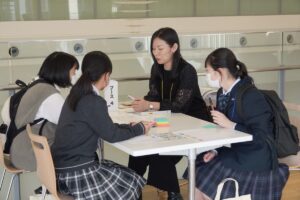
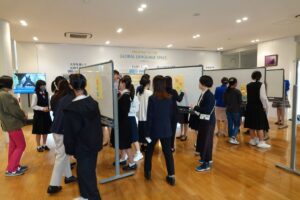
Another significant feature of this project was that we prepared different programs for parents than for junior and senior high school girls.
While the junior and senior high school girls were engaged in Science Adventure II “Talk with engineers and seniors” and Science Adventure III “Tell everyone about your dreams,” their parents participated in a special lecture “Unconscious Bias in Choosing a Career Path in Science and Engineering” and an opinion exchange session. The parents were invited to attend a special lecture on “Unconscious Bias in Science and Engineering Career Choice” and a discussion session.
After learning about the background of unconscious bias and specific examples in the special lecture, all parents discussed the necessity of building a society where diverse human resources can widely participate in research and development in science and engineering fields in the subsequent opinion exchange session.
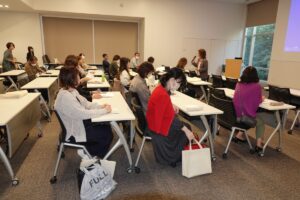
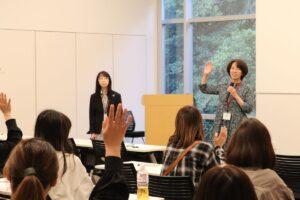
Despite the limited time of the one-day event, participants from junior high and high school girls said, “I had a vague idea of where I wanted to go in the future, but this event helped me understand what I need to do now. I was able to clearly recognize my future image, and it was a very good time.” “The lecturers were very good at teaching us in an easy-to-understand and detailed manner.”
Parents also commented, “I learned that I should not say anything that will put pressure on my child, that the next generation is unlimited, and that the best thing parents can do is to support them, even if it is small. I am glad that the career lecture matched my daughter’s desired career path.” “I also enjoyed the experiments that I cannot do every day.”
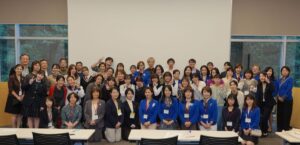
Following the March 2022 event in Hamamatsu City, Shizuoka Prefecture, this was the second time for us to conduct a full-scale science and engineering career choice support program for female junior and senior high school students outside the Tokyo metropolitan area. We were able to confirm from the questionnaire that the program generally received a high level of satisfaction. It was particularly impressive that the “Career Lectures” and Science Adventure II “Let’s Talk with Engineers and Seniors”, in which participants were able to hear directly from female researchers, engineers, graduate and undergraduate students who have actually chosen a career in science and engineering, received extremely high satisfaction ratings. While many expressed a desire to see the program continue, others suggested that the timing should be carefully chosen so as not to overlap with school events, so that more female junior and senior high school students can participate.
Finally, we would like to thank the Noevir Green Foundation and the Agilent Technologies Foundation for their support in implementing this project. In addition, the Kagoshima University Science Café Volunteers’ Group provided support in the selection of lecturers and overall planning and operation. Once again, we would like to express our deepest gratitude to the many people who contributed to the realization of this project.
The workshop is also posted on the Kagoshima University website (article published on November 2, 2023).

